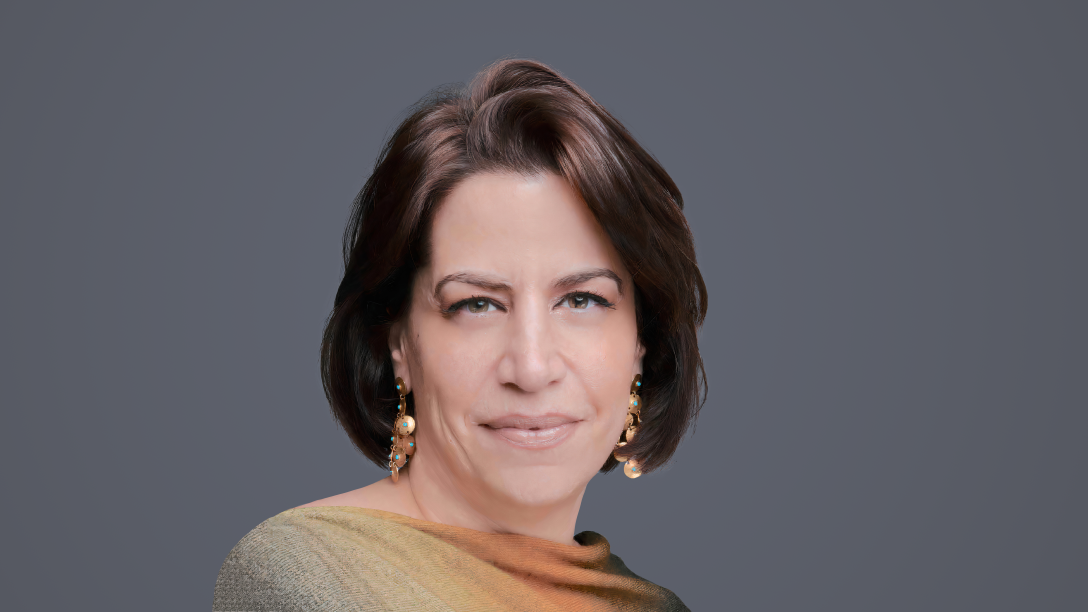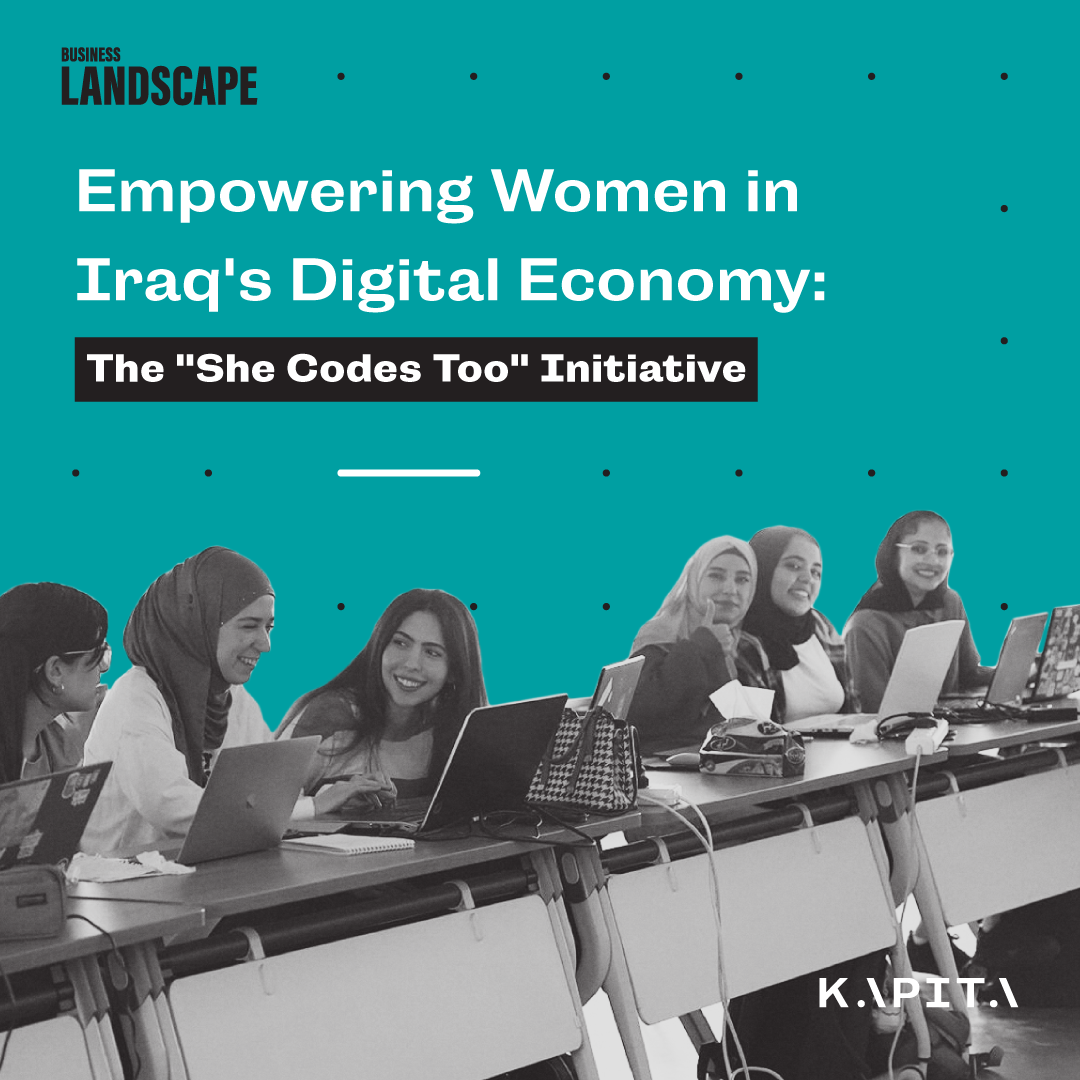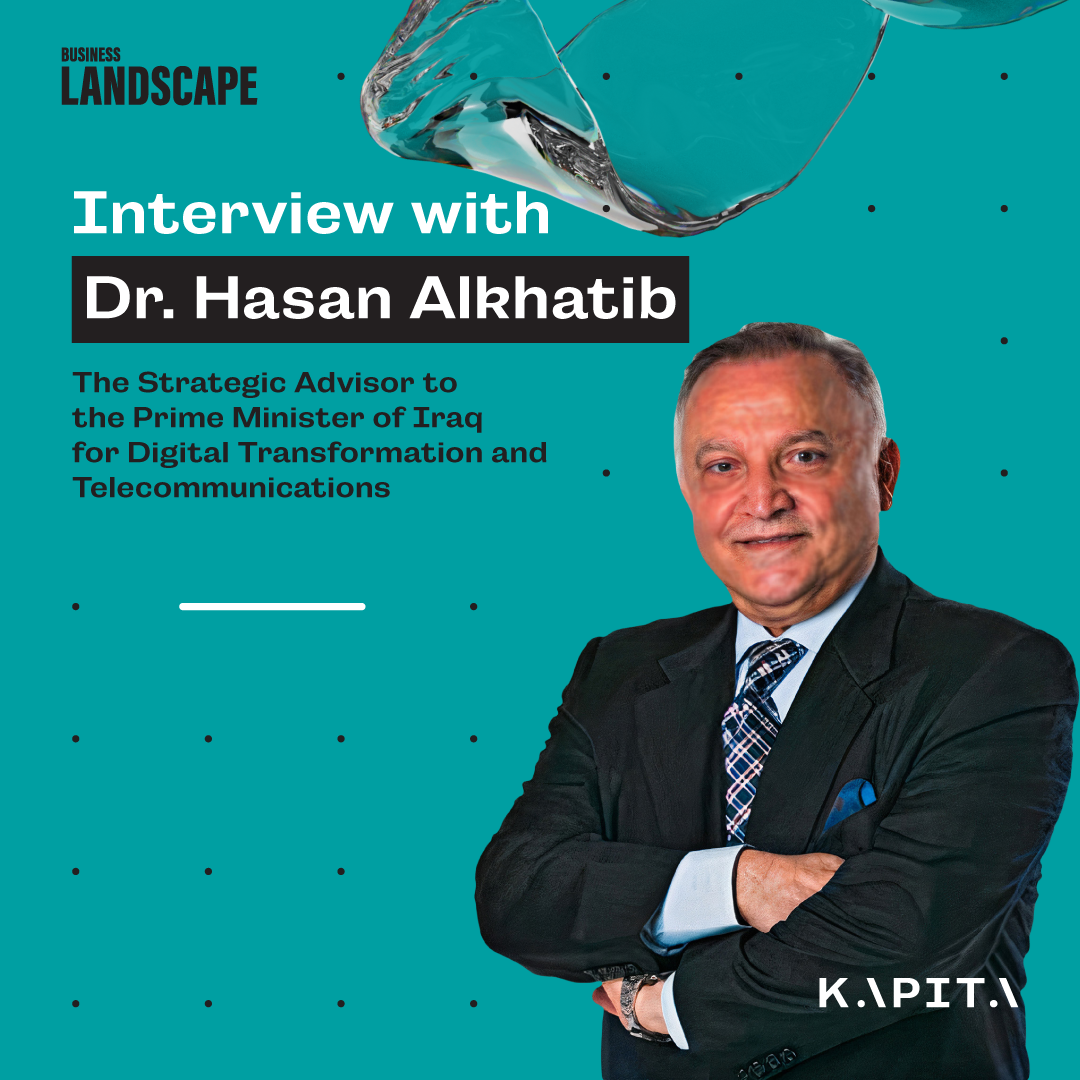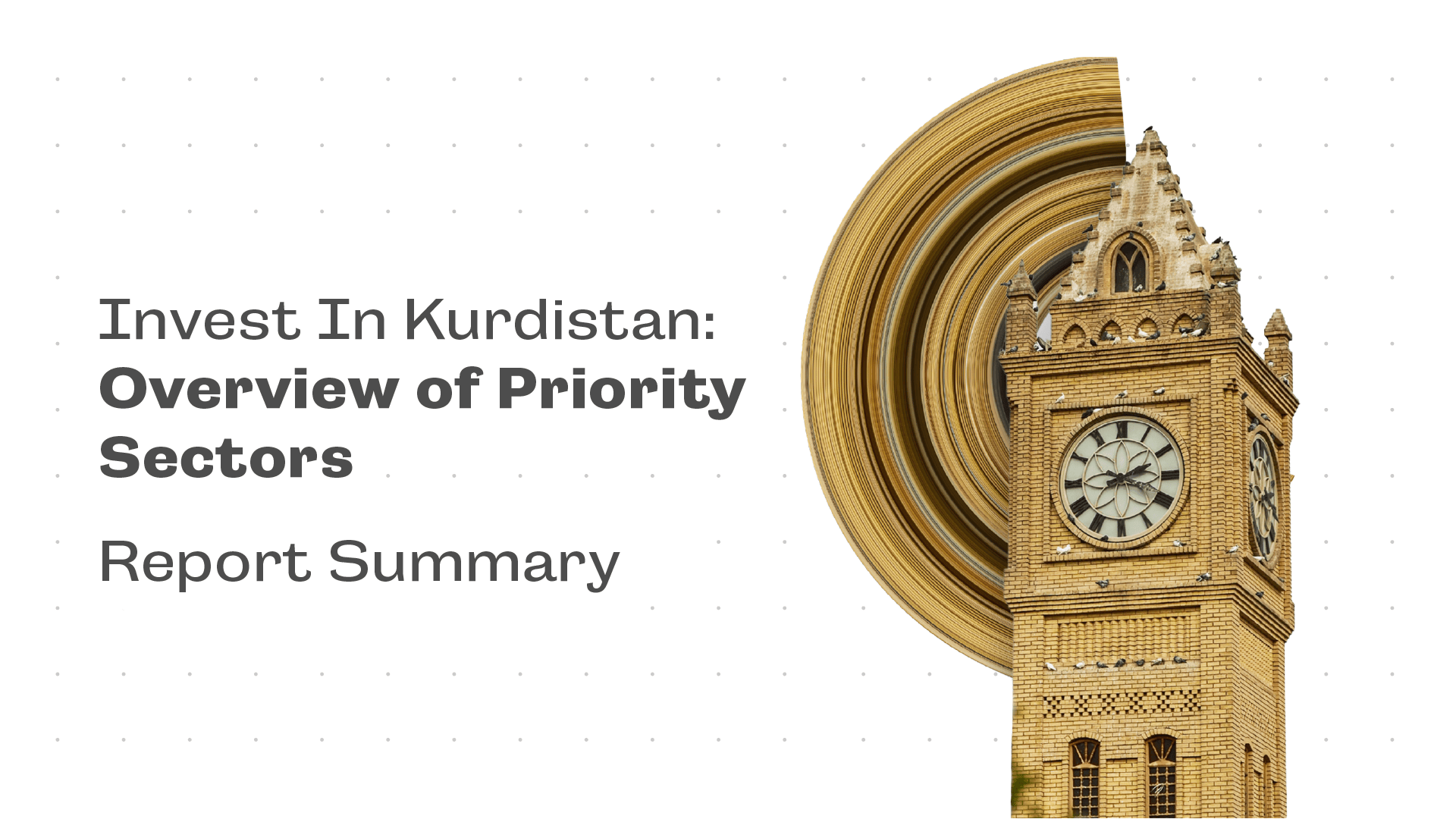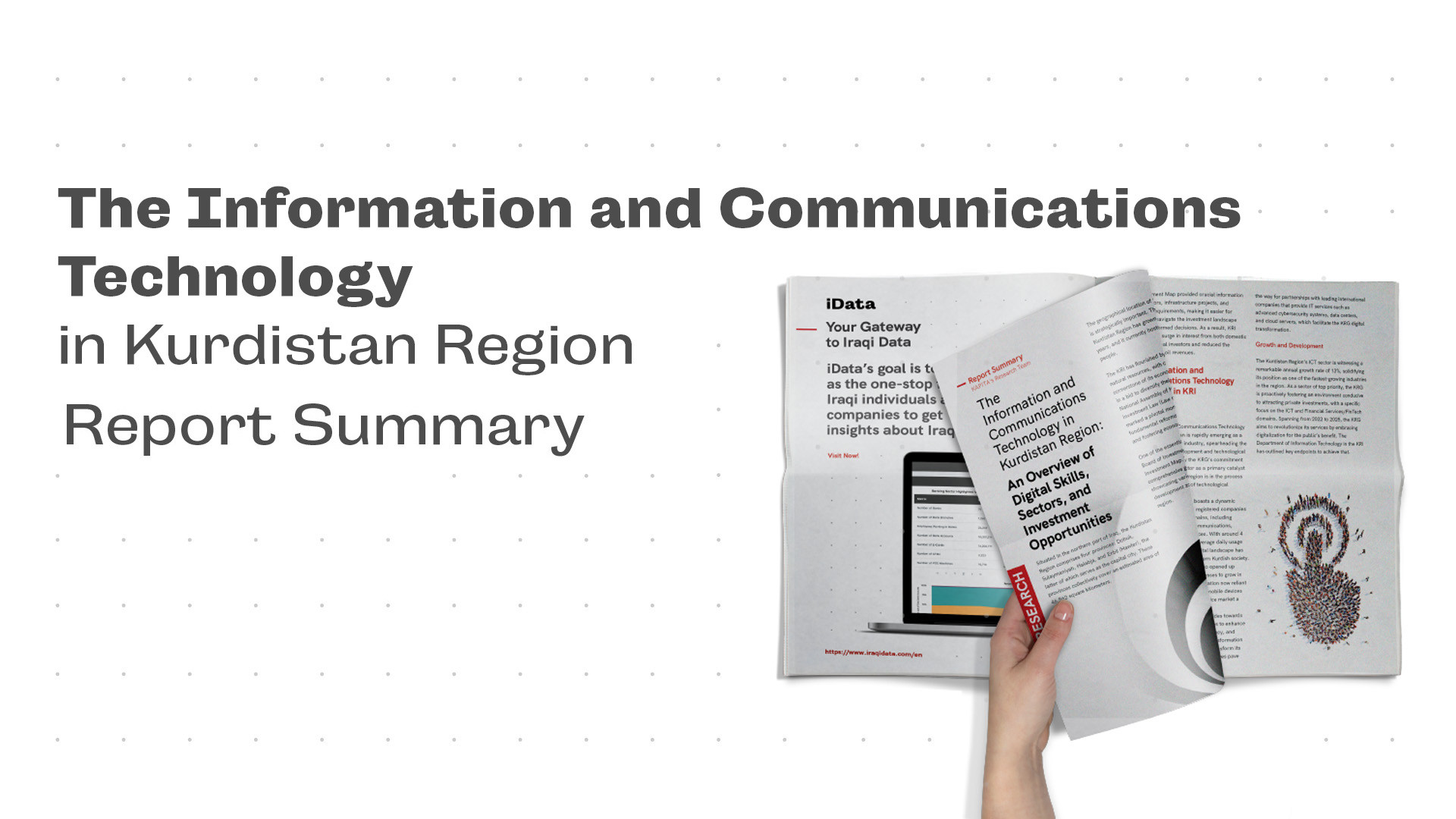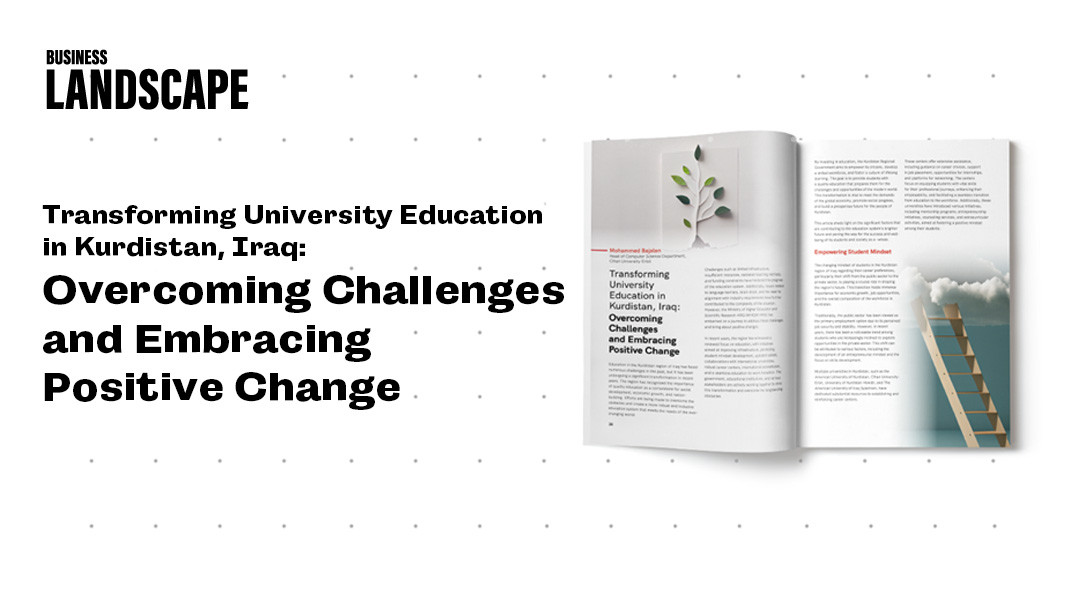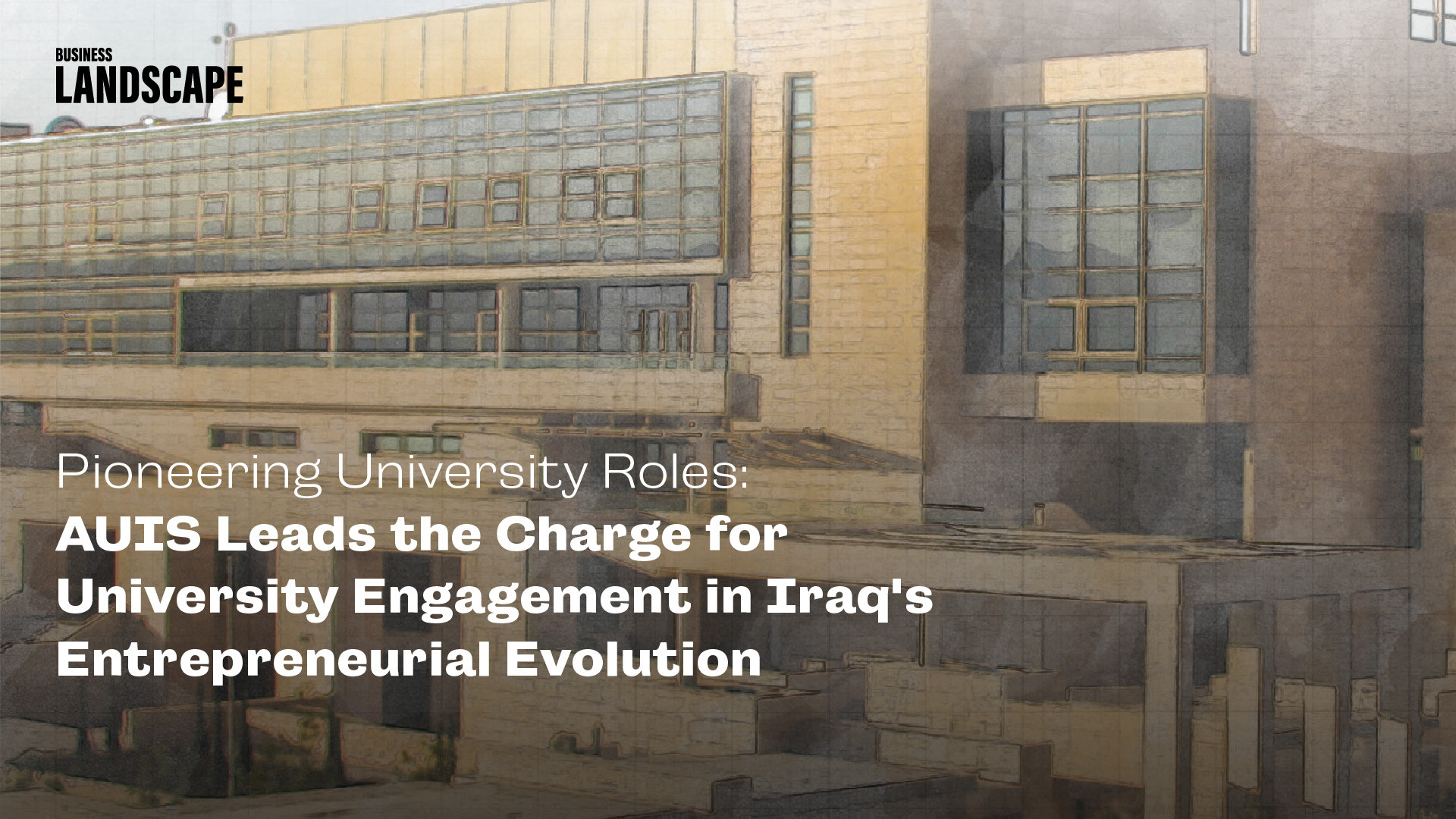Joanne Marques is a Senior Advisor at Runway Strategies, a global strategic advisory firm that helps startups navigate the world of public policy. Mrs. Marques has previously held roles in the public sector, international organizations, and the private sector across multiple industries and geographies. She is also a Founding Member of Playbook, a digital networking and learning platform that brings women together to support their career development goals. Mrs. Marques is also a Board Member of the Iraq Fund for Higher Education and a part of the Iraqi Angel Investors Network (IAIN).
In this interview, Mrs. Marques discusses the essential role of public policies in supporting digital transformation and shaping ecosystems and industries for the future. Furthermore, she shares the reasons she joined IAIN, her admiration of Iraqi entrepreneurs, the crucial role of education in preparing individuals for the private sector of today and tomorrow, and her views on gender inequalities and how to overcome them.
We would love to learn more about you and your career.
I was born in the United States to Iraqi Chaldean immigrants who had the courage to come to a new country with nothing in their pockets to build a new life. They did not have the benefits of wealth or education. They did not even speak the language. But what they did have was an incredible strength of character, a willingness to work hard, a deep sense of community, and an abundance of hope. And despite the challenges that they, like most immigrants, faced getting settled in a new country, they made sure to instill in us the value of hard work and education. They were determined to give us opportunities that they did not have. I learned so many valuable lessons from them - not the least of which was how to turn adversity into resilience.
I was not only influenced by my own experiences growing up as the child of immigrants but I also had the benefit of being exposed to a community of immigrants from all over the world. They embraced their various backgrounds and cultures, yet they were still Americans. It made me appreciate the benefits of diversity very early in life. This appreciation for diversity is one of the things that continued to draw me to Iraq. Iraq is certainly one of the most diverse countries in the Middle East region - religiously, linguistically, and ethnically. The more I learned about it, the more fascinated I became with Iraq. This diversity is one of Iraq’s greatest gifts. When this diversity is embraced, it can be a source of incredible strength.
When I started college, I was not quite sure what I wanted to do professionally. But one of the benefits of the higher education system in the US is that you are given the space and time to explore your interests before having to decide on a major. I was fascinated by the dynamism and challenges of the Middle East, and I also had a very personal connection to the region. While at the University of Michigan, I decided to pursue a Bachelor of Arts degree in both Political Science and Near Eastern Studies, combining my interest in the region with my interest in policy development. After graduation, I went to law school at Case Western Reserve University School of Law but quickly realized that I did not want to be a lawyer in the typical sense. It was the policy aspects of lawmaking and all the advocacy work required to develop sound public policy that I enjoyed the most. It shows that you can always change. You may go down a path and realize that it is not necessarily the path for you for the long term. Nevertheless, each and every path you take supports your broader journey.
After graduating from law school - I wanted to get practical experience working in government. So when the opportunity to join the public sector came my way, I was keen to get started. For me, working directly in the public sector was an opportunity to serve, learn and make a tangible contribution. I spent six years working in the public sector, including experiences in both the legislative and executive branch of the US Government and International Organizations. Understanding how the public sector works internally is key to successful advocacy work. The variety of roles that I held allowed me to see things both from a US perspective and an international perspective. Nevertheless, I felt it was equally important to also have private sector experience early in my career. So I moved to the Middle East in 2009 for my first corporate private sector experience and I spent over a decade living and working in the region with vastly different companies. One of the great things about working in the public policy space is that it is a skill that is transferable across industries, so if you are willing to move into a different industry, those opportunities will always exist. It is never dull. You have an opportunity to learn about and work in multiple sectors if you want to do so.
How was the transition from working in the public sector to the private sector?
My first corporate experience was with Honeywell International. It was an incredible opportunity to help them set up operations in Iraq, but it was certainly very different from the work I was doing in the public sector. When you make such a transition, it is important that you move into a role that you are very excited about. It was a fast-moving environment. I learned so much about the work involved in entering a new market - particularly one as challenging and fascinating as Iraq. When I look back on my experiences in the private sector thus far, I have realized that some of the roles that I enjoyed the most were the ones where I felt like I was part of building something. For example, my time at Honeywell working on the setup of the Iraq business felt very similar to my time at Uber. This may seem surprising given that these are two very different companies - one is a very established multinational industrial corporation, and the other was a tech startup.
Nevertheless, the experiences were very similar. Uber still had a startup feel in the region during my time there. Everyone was energized, impact-driven, and very focused. We were in constant building mode - launching new products and launching in new markets. And at Honeywell, we were setting up operations and building a business in Iraq from scratch, setting up local infrastructure, and hiring a team. Each and every member of the team was fully committed and mission-oriented. It was an intense environment, but we could quickly see the positive impact of the work we were doing and that kept us going despite the challenges. It is essential to keep an open mind about the roles that come your way. Be open to challenging opportunities that take you out of your comfort zone. Those are often the ones that will be the most meaningful, both professionally and personally.
You have worked previously with Uber in the MENA region in the policy realm; how can policy address the challenges in the transportation sector in the case of Iraq to ensure we have better infrastructure and regulations for ride-hailing and last-mile delivery companies to operate?
Transportation is fundamentally about the movement of goods and people from one place to another. The role of government is central to ensuring that those people and goods can move in an affordable, reliable, efficient, and safe manner. The transportation sector as a whole is a major contributor to the economic growth and development of a country. It is not only a source of job creation, but the availability of multimodal transportation facilitates access to work opportunities across all sectors of the economy. So in Iraq, it is important to approach the sector from a number of angles. First, transportation needs should be prioritized. In a country with so many needs, there will be multiple competing priorities, but transportation underpins the rest of the economy. Hence, it needs to be high on the list of government priorities. Second, investment in mass public transportation is key, but it is equally as important to have a regulatory framework in place that supports a robust, multimodal, and competitive private sector that further supports the country’s transport needs. Such a framework needs to consider the sector holistically. The services provided by ride-hailing and last-mile delivery companies are complementary to an effective and safe public sector transportation network. And finally, the public and private sector need to engage directly and transparently with each other. The more consultative and transparent the policy-making process is, the better the result.
Are there any particular policies with the stakeholders in mind that you worked on in MENA that Iraq can adopt to help facilitate the adaptation of digital technologies?
There is certainly no shortage of government stakeholders who are doing things right in the region. But the most successful policymakers in the region are the ones who understand the importance of having an independent, dynamic and flourishing private sector. They understand the benefits of engaging in open dialogue with the private sector; they take the time to solicit comments and feedback from the private sector when it comes to future regulations and they work collaboratively with the private sector to change policies where needed. This does not always come naturally, especially to government stakeholders in countries that have historically had a very centrally controlled economy. In Iraq, in particular, it is critical that the government takes a hard look at existing legislation because there is no doubt that the business climate needs to be improved significantly. But by providing the needed regulatory landscape and investments in infrastructure, digital services have the potential to radically transform Iraq’s economy for the better.
How does joining Runway Strategies connect the two fronts of entrepreneurship and policy-making? And how can policies empower entrepreneurship and push for innovation and technological transformation?
At Runway Strategies, we provide innovative and entrepreneurial companies with policy advice and support. Each of our clients is at a different stage of their startup journey. Hence, we tailor our offering to fit their policy needs. Moreover, our client’s policy needs will also depend on the particular industry. We work with them to unlock regulatory bottlenecks, support their advocacy efforts, and enable their market entry needs.
Policymakers have a crucial role to play in protecting consumers, leveling the playing field, and ensuring a competitive marketplace, and in growing and nurturing local startup ecosystems.
They have the ability to enact policies that can stifle innovation or help it flourish. Policymakers can create an enabling environment for startups to grow in a number of ways. Some of those ways include allowing for regulatory sandboxes, supporting incubators and accelerators, providing tax and other incentives, and removing regulatory barriers. The importance of a two-way dialogue between policymakers and entrepreneurs cannot be underestimated. Policymakers should engage with entrepreneurs directly to hear their pain points so they can address them. And likewise, it is also crucial that entrepreneurs work to address policymakers' concerns.
Moreover, when policymakers remove regulatory roadblocks and develop regulatory policies that support a thriving ecosystem, this will encourage more entrepreneurs to start businesses and give local and international investors confidence to increase their investments in the local startup community.
Do you think the Iraqi entrepreneurial scene is ready to have policy dialogues?
I think what is happening in the Iraqi entrepreneurial scene is extraordinary. These are entrepreneurs who are battle tested. They are living and working in one of the most challenging environments in the world yet they are still managing to build businesses. The spirit of Iraqi entrepreneurs is alive and well, but their journey should not have to be as difficult as it is. The pressure that entrepreneurs and founders endure when starting a business anywhere in the world is immense but these are multiplied when operating in a business environment like Iraq that urgently needs reform. This is where policy dialogue with government stakeholders is crucial. In some ways, Iraqi entrepreneurs are better positioned to advocate for change than, say - global firms who are not yet present locally in the Iraqi market. They understand the local market needs and pain points better than anyone else. They can be a major force for policy change because they are homegrown, hiring locally, and are already investing in and growing the local economy. Moreover, collective advocacy is just as important as individual advocacy and, in some cases - even more so. Whether this takes place through community or industry associations, it has a tremendous multiplier effect. If they can come together as a collective, their voices will be amplified.
Could you tell us why you have joined the Iraqi Angel Investors Network? If you have attended any pitches? And how do you view the Iraqi entrepreneurial scene?
I spoke earlier about how growing up, I learned about the power of resilience. Iraqis have experienced no shortage of adversity over the last four decades and that adversity has translated into incredible resilience. Such resilience is an essential character trait of any successful founder. And to ultimately succeed as a founder, you have to be able to weather the storms. I joined the Iraq Angel Investors Network because I believe that people who face adversity make better business leaders and I think entrepreneurship is key to Iraq’s economic growth and stability. And yes - I have attended some of the pitches and I must say they have been impressive. Some of them could have been given anywhere in the world. It is clear that the work being done by the various accelerators and incubators in Iraq is yielding results.
Can you tell us more about your involvement with Playbook, what they are trying to do and how they are helping reduce the gender inequalities in the ecosystem?
The Co-founders of PLAYBOOK identified a genuine need in the region for a digital learning platform specifically focused on women's career development, and they have built an extraordinary platform to address those needs. I was impressed by the work that they were doing, so I decided to join. PLAYBOOK has created a forum that gives women the opportunity to network, learn from and support each other. It is both a networking platform and a learning platform with incredible Masterclasses available to members. And it is this combination that makes it so special.
I think it is beneficial to have a diverse support network. It can be tremendously helpful to engage with women with whom you identify socially and culturally – women who have faced some of the same barriers that you have faced. But it is also wonderful to be exposed to women who have come from a completely different background. PLAYBOOK has this essential offering: it helps women find a support network that is personally meaningful to them wherever they are based. Women can find inspiration in other women leaders and their individual journeys through the PLAYBOOK digital platform from the comfort of their homes.
What do you think are the root causes of gender inequality in the ecosystem, and how can we overcome them?
There are obviously many causes of gender inequality, but a lack of access to education is certainly one of the root causes. It is one of the reasons why I am so eager to support educational and training initiatives. Ultimately, I believe every country has its own journey. Some countries are further ahead in addressing inequalities, and others are just starting to. In the startup space specifically, in many countries, there is no shortage of women entrepreneurs. But sadly, these women entrepreneurs are only getting a tiny share of the available investment capital. So, in short – we have come a long way, but there is so much more work to be done. And in Iraq specifically, despite the hurdles - there is much to be optimistic about. I have had the privilege of getting to know an impressive number of Iraqi women leaders having a major positive impact in Iraq. They have exhibited so much utter strength and resilience. It is truly inspiring.
There is no doubt that both the public sector and the private sector have a role to play. But each of us has a role to play as individuals. It is vital to speak up when we see unfairness or inappropriate behavior, regardless of gender, even if it comes at a personal cost. I had the benefit very early on in my career of having incredible mentors both during my time in the public sector and private sector. They invested in my development, gave me the space to grow, and reminded me to trust my instincts. They were incredible examples of what leadership is all about. It is about investing in your team and their growth, giving them the freedom to do their work, and ultimately treating them with respect. Such mentorship is instrumental to the development of one’s career trajectory. Each of us must pay that forward and provide that same opportunity for mentorship and support to others.
We know that you are a strong advocate for education. Was it the reason you joined the Iraq Fund for Higher Education as a board member? Can you tell us more about that and what they are trying to do?
Education is not always about getting a degree. Education can come from real life practical experience, it can come in the form of skills training, or perhaps it may come from living and working in multiple countries. But one thing is for sure - in a rapidly changing world, learning needs to be a constant part of our lives. And this is what made me want to be part of the Iraq Fund for Higher Education (IFHE). It is a remarkable organization filling a significant gap in the Iraqi education system by providing Iraqis with the skills they need to navigate their career path successfully now and in the future. One of their flagship programs is the Baghdad Business School. Much like everywhere else, the existing educational system in Iraq is not yet prepared to educate and train individuals for the future of work. And ultimately, education should be more than just theoretical - practical skills are absolutely critical. IFHE is providing Iraqis with an opportunity to gain those crucial practical skills, thereby preparing generations of Iraqis for the future of work. It is a privilege to be part of an organization that is having such a meaningful impact.
